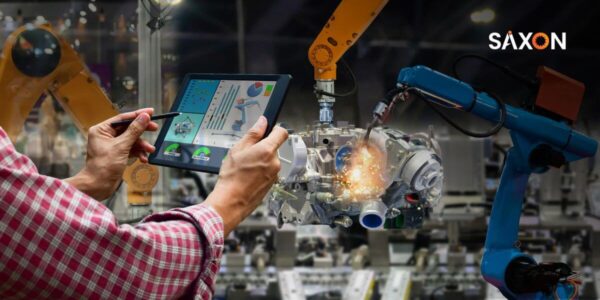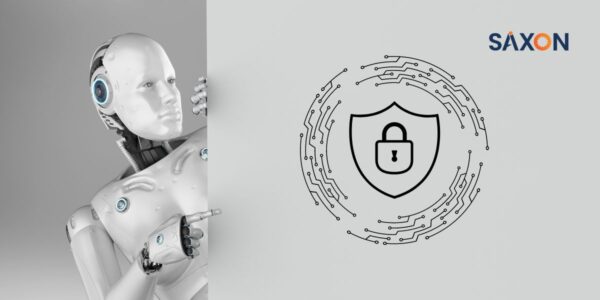Post the pandemic, the workplace scenario has changed quite a bit. Though it has been evolving over the years, but now there is a paradigm shift within the workplace itself. It is no longer the conventional 9-to-5 fixed-number-of-hours grind but a more flexible and collective synergetic environment. Of course, remote working arrangements and flexible working hours were there before the Covid 19 pandemic, but these were not a part of the mainstream workplace. The onset of the pandemic made organisations to reconfigure their approaches to ensure the wellbeing of their employees. Post pandemic scenario has forced enterprises to accommodate to the comfort pandemic introduced.
Some inevitable changes brought about in the workplace are:
- Remote work– Many employees prefer remote work to save time and exhaustion from long commutes.
- Hybrid work– Hybrid work has led to quality work-life balance and more quality family time.
- Gig workers– Freelance employees, contract-based workers, independent project-based hires, temporary workforce who are mobile, agile and prefer to work remotely.
- Apart from these major changes in the workplace, there arises the challenges of high employee attrition as people continually quit their jobs in search of greener pastures, better pay, flexibility, and benefits. Moreover, the Gen Z and the younger workforce are more inclined to switch jobs than their older counterparts.
All these paradigm changes have made managing the workforce even more complex. When work and location get decoupled, the challenges and opportunities posed to the people and productivity managers require a relook with a different approach. Digitization and AI adopting is helping enterprises tackle these challenges and implement intelligent management of the modern workforce. With the latest advances in AI technology, AI is not only reducing the tedious manual work but also actively increasing the engagement of the modern workforce.
Digitization of the modern workforce and Role of AI
Across the globe, we have seen the disruptive changes in the workplace. Enterprises have recognised the need to go digital when it comes to running the business. Modern day employees no longer are satisfied with the traditional work model. They welcome an increased pace of digital transformation which empowers them to work remotely/ hybrid manner, deliver qualitative results, and have good employee experience. Saving on long commutes, spending quality family time, having a work-life balance enhances the employee experience as well.
Artificial Intelligence has a significant role to play when it comes to achieving these outcomes. When AI is integrated in the workforce management tools, it automates and augments a wide range of tasks comprising of scheduling, budgeting, compliance, payroll, employee engagement and furthermore. Thus, AI plays a key role when it comes to tackling modern workforce management challenges.
According to the 2022 Gartner CIO and Technology Executive Survey, 48% of CIOs have already utilized Artificial Intelligence and Machine Learning technologies or are planning to utilize within the next twelve months.
Organisations can leverage the employee data using AI for a wide range of functions such as analytics, predictive analytics for future requirements and much more. One of the use cases of AI can be matching the employee skills with probable future projects.
Organisations can leverage AI- based data analytics in functions such as customised hiring and training proposals. They can provide real-time feedback on the performance and augment various other workforce management operations. AI also factors in when it comes to employee engagement when the work model is remote.
Let us see the 8 ways how AI is helping organisations to overcome modern workforce management challenges:
- Calculating accurate resource requirements
Often employees are either overburdened or under-allocated with tasks and activities as the managements barely have the time to create accurate employee schedules. As a result, several issues arise such as employees face burnout, there are delays in completion of tasks, under-utilised time, wasted work hours, etc.
Having a management solution which leverages AI, the management can accurately analyse the resource requirements as well as foresee the future demands and create flexible schedules for the employees. Thus, using the solutions, managers not only improve the allocation and application of resources, but create better work schedules and thus benefit the employees in doing their work faster while lowering stress.
- Utilization of skills:
Employees have a wide range of skills which most of the time go underutilized. To harness and make the most of the employees’ expertise, managers should try to utilize their skills optimally. However, the conventional resource management processes do not yield as much as they are not capable of optimally leveraging the skills and time of the employees.
Predictive analytics solutions can support the management in this regard. It will help determine the efficient allocation of resources across the tasks based on timelines and skills. Along with automation and predictive analytics, managers can easily calculate resource requirements and utilize skills better.
- Optimization of resource costs:
Every organisation strives to keep the costs minimum in a project so that they can maximise the profits. The main cost components being resources and time, it is vital for the management to strike a balance between having the resources available and the proper timelines for completion of the project. AI enabled solutions can match the resources with the demand seamlessly as well as meet the time and cost criteria in a project. Managers can assign the correct resources to the projects which allows timely deliveries, successful project completion on time and within budget. Thus, AI-powered solutions optimise the costs by helping organisations save time and money.
- Enhancement of employee productivity:
Employee productivity is a decisive factor which directly highlights in project delivery and revenue. Thus, organisations should strive to improve the productivity levels of their employees. With the help of AI solutions, the management can allocate the right resources to the tasks as it helps in preventing sudden schedule changes and account the correct skills and qualifications to tasks. As a result, it boosts not only the productivity but also the employee morale which benefits the enterprise eventually.
- Lowering turnover:
With the help of AI based management solutions, organisations can offer more flexibility to their employees. Thus, they can plan the workforce with their flexible schedules, allowing employees to work remotely, hybrid, or according to their preferences. This allows the employee to work more efficiently and enhances their job satisfaction. It results in lower employee turnover.
- Fair performance Evaluations:
When it comes to evaluating performance, AI based solutions can analyse huge data silos and produce accurate and fair employee performance evaluations. The evaluations are bias- free and subjective as they leverage from actual data and generate insights on the performance. Both management and the employees prefer fair evaluations which is done objectively and based on the work. While the managers get a clearer insight of the employees, the process also boosts the employee morale and engagement.
- Payroll processing:
Organisations can process payrolls accurately and much faster by adopting AI based automation solutions. Processing the same manually is an overly complicated process and prone to errors which can cost heavily on the individual and the organisation. Processing the complex hybrid/remote/ flexible work schedules of employees and delivering error-free and on-time payment leads to happy employees.
Apart from that, AI based payroll processing can ensure payroll compliance for the organisation. It is challenging for an enterprise to navigate among the applicable laws and regulations regarding payrolls, which AI based solutions can seamlessly manoeuvre and apply while processing.
- Improving the hiring process:
The entire hiring process involves a good amount of time and effort. With the advent of AI-based solutions, recruiters can go through multiple resumes and select ideal candidates much easily and faster. With advanced AI features such as Natural Language Processing the results are even more accurate and thus augments the HR department.
Takeaway
According to the IBM Global AI Adoption Index 2022, 35% companies are already using AI in their business while additional 42% companies are exploring the adoption of AI. The statistics indicate how important it is to leverage AI in overcoming workforce management challenges. Leveraging AI can not only ensure strategic management but also enhance the employee engagement, improve efficiency and benefit both the organisation and the workforce overall.
Do you wish to incorporate AI based solutions in your organisation? At Saxon AI, we provide tailored solutions for all your use cases. Contact us for a personalized demo.
Follow us on LinkedIn and Medium to stay updated about the latest enterprise technology trends.
















